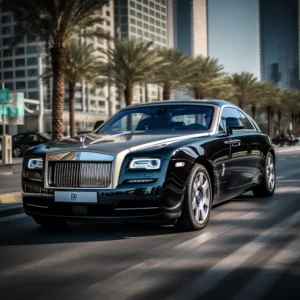Malaysia Airlines plans to expand in India; eyes deep codeshare pact with Indian carrier
New Delhi, Jan 23 (PTI) Bullish on the “important” Indian aviation market, Malaysia Airlines will soon have a deep codeshare partnership with an Indian carrier as well as further expand its operations to the north east and southern destinations in the country, according to a top official.
Malaysia Airlines, the national carrier that is part of the Malaysia Aviation Group, operates a total of 69 weekly flights to nine Indian cities.
In an interview with PTI, Captain Izham Ismail, Group Managing Director of Malaysia Aviation Group, said, “India is an important market for us and we want to be part of the success story of India as a country”.
The airline, which has implemented a financial restructuring and is on the revival path, connects nine Indian destinations to Malaysia. The cities are Delhi, Mumbai, Bengaluru, Chennai, Hyderabad, Kochi, Amritsar, Ahmedabad and Thiruvananthapuram.
Apart from crossing its pre-pandemic levels of operations in the Indian market, the carrier, this month, increased its frequency on the Amritsar-Kuala Lumpur route from two to four weekly flights.
Currently, the airline has an interline partnership with Vistara.
An interline arrangement refers to a pact to issue and accept tickets for flights that are operated by the partner airline. When selling an interline ticket, the operating airlines’ own flight numbers are used.
“We are at the tail-end of negotiations with one particular airline… Malaysia Airlines is working on having a deep codeshare with an Indian airline,” Ismail, who was on a visit to India last week, said.
However, specific details were not disclosed.
Codesharing allows an airline to book its passengers on its partner carriers and provide seamless travel to various destinations.
Talking about the future plans for the Indian market, Ismail said that in the next two to three years, Malaysia Airlines will be looking at the north east, with flights to Guwahati and Kolkata.
The carrier used to fly to Kolkata but stopped the services in 2015.
“We are also looking at south India (places) like Trichy and Vizag.
Another western destination we are looking at is Goa,” he said.
The airline is hopeful of expanding to these regions, once it takes deliveries of new Boeing 737-8s and Airbus 330 neos. It has a fleet of 100 planes and the number is expected to rise to 170 by 2030.
“We believe very strongly that where possible we want to upgrade our services to India using wide-bodies,” he said, adding that his ambition for the group is to treat customers with empathy, humility and respect.
Ismail also emphasised that cabin services as well as market share are important.
India is one of the fastest growing aviation markets in the world and domestic airlines are expanding their fleets as well as operations.
Against this backdrop, Ismail said the airline cannot compete with the likes of IndiGo and Air India, and as a key strategy, it looks at partnerships.
Among others, the carrier has partnerships with Japan Airlines, Cathay Pacific and Qatar Airways.
“In 2015, our market share was 12 per cent in Malaysia and South East Asia. Today, we are commanding 25 per cent market share. I am very cognizant of competition. We hope to continue to grow in India in the next two to three years,” he said.
Overall, Ismail said the aim is to make Malaysia Airlines to be among the top 10 global airlines globally and the top 5 in the Asia Pacific region.
Stressing that Customer Value Proposition (CVP) is key, he said the airline is very focused that it needs to upgrade its products, cabin comfort, ensure inflight dining is top notch especially in a market like India where the population is diverse.
Last week, Civil Aviation Minister Jyotiraditya Scindia said the annual domestic air passenger traffic is projected to double to around 300 million annually by 2030.
With 300 million passengers a year in 2030, India’s aviation penetration would be at 10-15 per cent and still be a potential market in the decades to come, he had said.






